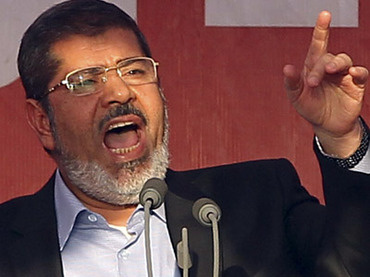Differences in Egypt

Recently and after the draft of Egypt’s temporary constitution was announced by Mohammad Morsi, the president of this country, and the enhancement of his power, conflicts between the proponents and opponents of this decision grew and intensified on a daily basis. Perhaps the existence of differences is natural in any society, because human beings and lively societies have spirits and thoughts and mental activity is a sign of livelihood. The important thing is how to solve these differences. In progressive societies, when a problem is created, they do not resort to violence; instead, they find the best solution with wisdom and prudence; like what happened in the then united Czechoslovakia, when, after some time, this country, with no bloodshed, was divided into two countries, the Czech Republic and Slovakia. The worst method to solve differences is when the ruler considers himself an absolute wise and righteous man. In that case, his opponents are automatically assumed to be unwise and unrighteous; hence, fighting against them and suppressing them becomes a duty. This method has numerous consequences. If the ruler comes to his senses and controls his desire and recognizes others' rights, peace and compromise will be possible and the problem will be solved with the least amount of costs. With the excuse that the opposition seeks to overthrow him from power and attempts to create unrest in the country, Mr. Morsi increased his power and, by removing the parallel forces, organized his plan in a way so that his opposition would not legally be able to stand against him. But he forgot that he will not always be the one who determines the scene of struggle and that it is possible that the opposition will not look to the Egyptian judges to achieve their rights; they might rather choose squares and the streets to show their protests. Therefore, his measures would become ineffective and the motivation of the opposition would only become stronger. Another mistake made by Mr. Morsi was that, instead of inviting the leaders of the opposition to talk and negotiate, he insisted on his orders and in order to neutralize the opposition’s moves, he asked his supporters to demonstrate in the streets.
This maneuver was aimed at creating fear among the opposition and Morsi used it as an approval and legitimization of his measures. Despite the demonstrations of the supporters, the opposition did not retreat and still insisted on their disagreements with Morsi's measures. Perhaps it is not too late yet and it is better if Morsi attempts to solve this crisis with prudence, for if the opposition is not convinced - even if they are suppressed - their slogans will become harsher and their demands will grow, hence, solving the problem would become more difficult. God has recommended his followers to learn from history. Anyone, either the oppressed or the oppressor, can use this recommendation. Sometimes people close their eyes and ears and are not able to use the divine blessings and they become aware when it is too late and no one can do anything to help. The Muslim Brotherhood and Mohammad Morsi are now faced with this huge decision.

